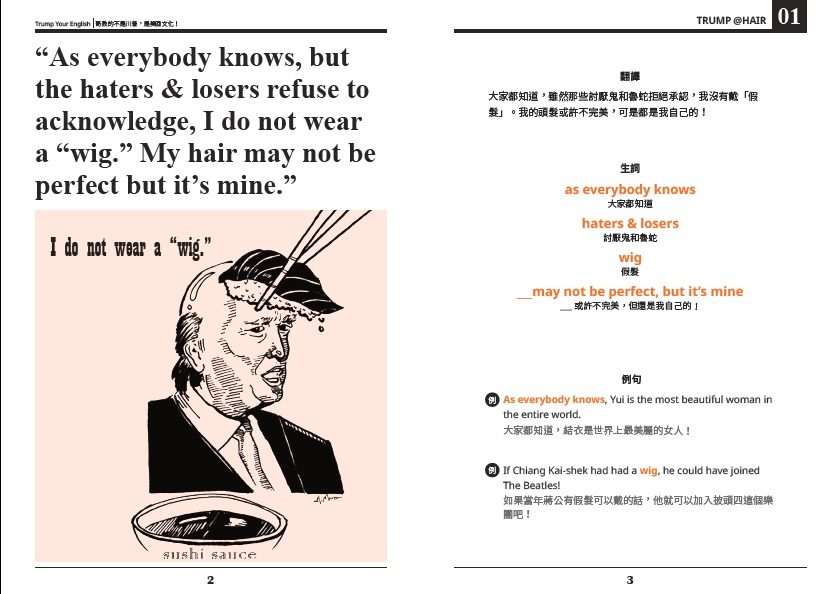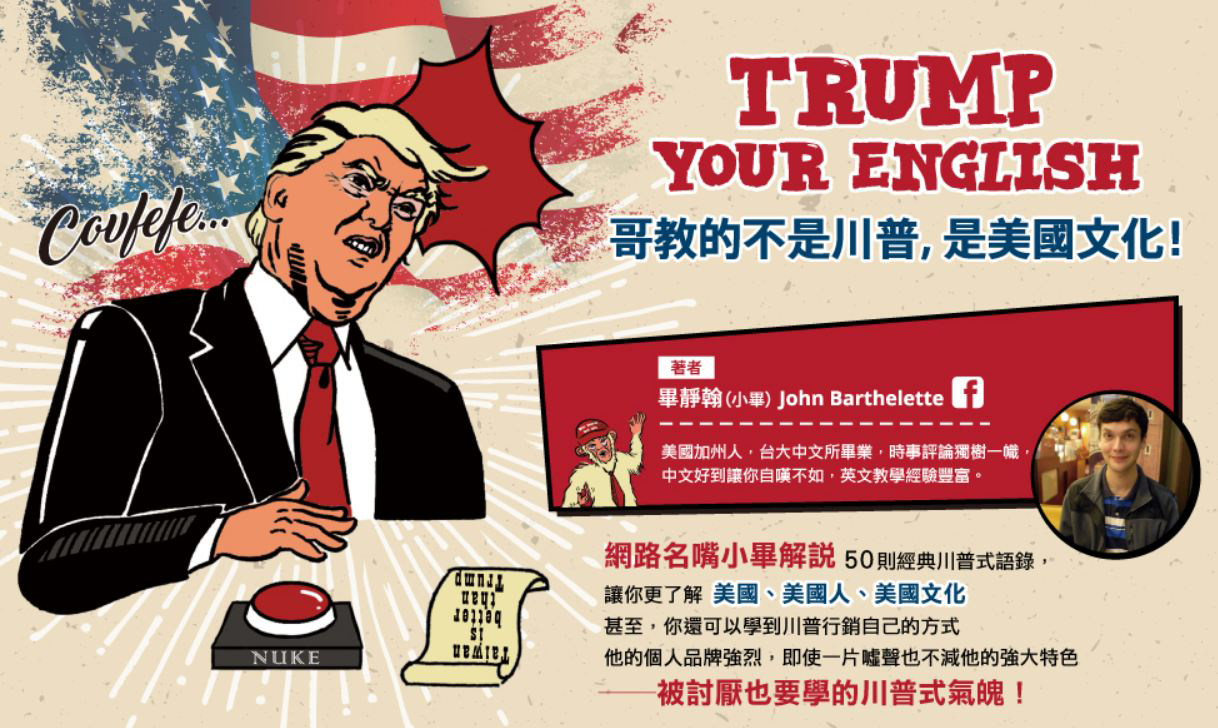Largely unacknowledged as a nation-state and generally overshadowed by its larger neighbor, China, Taiwan, perceiving itself as at risk and marginalized in the larger world, is particularly susceptible to blindly chasing international trends.
English, as the global lingua franca, has thus come to have great significance in Taiwan, with a sizable English teaching industry and an endless number of publications devoted to the subject.
As street signage, night market t-shirts, and Taiwanese English textbooks demonstrate, however, English education in Taiwan leaves a great deal to be desired. Teachers of English in Taiwanese language schools are often heard to complain that the Taiwanese superiors who wrote their textbooks refuse to let them fix errors in teaching texts.
As is the case in other East Asian countries, particularly those whose post-World War II development took place under the auspices of America’s military presence, such as South Korea and Japan, the “international” is often narrowly conceived as “Western”—and the “Western” is in its turn narrowly conceived of as “America”. America, then, comes to be thought of as the pinnacle of global civilization, as an aspirational model. This idea is given additional force by the fact that America is seen by many as the only guarantor of Taiwanese democratic freedoms against China’s threats to invade and conquer Taiwan, contributing to an often uncritical idealization of America.
This idealization unfortunately includes the idealization of Donald Trump. Seeing how Trump is, without doubt, the American president—the most powerful man in the world—many in Taiwanese society simply cannot accept the view of Trump as a failed businessman who somehow bumbled his way into the job. The media routinely twists Trump’s confused foreign policy moves into contorted arguments suggesting a grand master strategy beyond the comprehension of mere mortals. One example: After the Trump-Tsai phone call in December 2016, media grasped at straws, straining to convince itself that the call represented a lasting shift in America’s stance on Taiwan, rather than simply being another impulsive move on Trump’s part. Taiwanese media had spent months prior to the call fretting about the potentially destabilizing effects that a Trump presidency could have on US-Taiwan security relations. But after the phone call, this evaporated entirely, confusing the wish that Trump was keeping Taiwan’s best interests in mind with the political reality.
Regardless of Trump’s actual politics, the shockwaves of his election were immediately visible in Taiwan, where America is associated with the high and lofty “international world”. Signs went up almost immediately in Taipei for a luxury “Trump” branded building complex—although the Trump Organization also has development projects in Taiwan, it is thought by many that this particular project does not have links with the Trump organization. Trump masks and keychains appeared in night markets. Terry Guo, the owner of the infamous FoxConn, was rumored to be considering a presidential run, simply because Trump’s election popularized the notion that business owners could run for office and win. Believe it or not, after the Russian election interference controversy broke out, a doctor’s clinic on a street I used to live on even gave itself a new English name, Putin Comprehensive Medical Clinic.
So it is not too surprising that, shortly after Trump’s victory, one would begin to see his face on English teaching materials and on posters advertising English schools in Taiwan. Sometimes the homage appears serious, and sometimes it comes with no small degree of humor. A tongue-in-cheek English teaching book about learning “American culture” was written by a well-known American expat cultural commentator, John Barthelette; it’s called Trump Your English. In the case of this book, although Taiwanese may be well aware of Trump’s inarticulate English, the book may at least provide for some new vocabulary—even if this might be words like “bigly,” “loser,” or “covfefe.”

Similar incidents took place during the tenure of Trump’s much more articulate predecessor, who was viewed as highly eloquent in Taiwan. There was a wave of businesses named “Obama,” most famously a fried chicken stall named “Oba-Mama” at the Tonghua Night Market, as well as an English textbook entitled Learn English with Obama. We can expect to see the same with future American presidents. But the association of the American president with the broader politics of English teaching internationally seems especially fraught now, at a historical moment in which American global power remains paramount, even if more and more uncertain.





